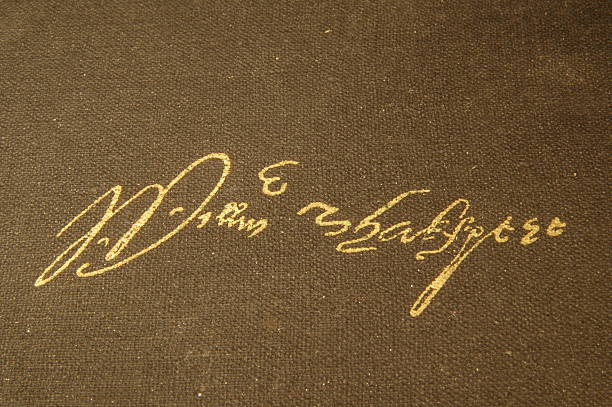Romantic Compliments from Classic Literature
There’s something undeniably magical about the way classic authors penned their most heartfelt compliments—words that still make us swoon centuries later. Whether it’s Mr. Darcy’s restrained yet powerful confession in Pride and Prejudice (“You must allow me to tell you how ardently I admire and love you.”) or Heathcliff’s raw, almost desperate devotion in Wuthering Heights (“Whatever our souls are made of, his and mine are the same.”), these lines carry a timeless weight that modern praise often lacks.
Why do these romantic book quotes still resonate? It’s not just the poetic language—it’s the intensity of emotion. Classic authors didn’t just say “I love you.” They painted love as something all-consuming, whether through Austen’s sly social commentary or Brontë’s stormy passion. Take Elizabeth Barrett Browning’s Sonnets from the Portuguese, where love is immortalized in lines like, “How do I love thee? Let me count the ways.” It’s a masterclass in specificity, turning affection into something tangible.
Want to borrow this elegance? Here’s how:
-
For love letters: Borrow Austen’s balance of warmth and propriety (“My feelings will not be repressed.”).
-
For anniversaries: Use Browning’s grandeur (“I love thee to the depth and breadth and height my soul can reach.”).
-
For modern flair: Shorten Shakespeare’s sonnets (“Shall I compare thee to a summer’s day?” → “You outshine every summer.”).
These literary compliments aren’t relics—they’re blueprints for praise that lingers. Up next? The witty side of classic flattery.
Witty & Intellectual Praise
If romance is the heart of classic compliments, wit is their sparkling edge. Oscar Wilde turned flattery into an art form with lines like “You are the only person I would like to know thoroughly” (The Picture of Dorian Gray), blending charm with just enough cheek to feel fresh. Meanwhile, Shakespeare’s sonnets—“So long as men can breathe or eyes can see, So long lives this, and this gives life to thee”—prove that clever wordplay makes praise unforgettable.
What makes these Shakespearean compliments and Wildean quips so effective? They engage the mind as much as the heart. Jane Austen’s Mr. Knightley (Emma) delivers backhanded praise like “Better to be without sense than misapply it as you do,” which somehow feels like a compliment because it’s tailored to the recipient’s wit.
How to steal their genius:
-
For playful teasing: Wilde’s paradoxes (“I can resist everything except temptation.” → “You’re my only exception.”).
-
For intellectual praise: Use Milton or Donne’s layered metaphors (“Thy soul was like a star, and dwelt apart.”).
-
For social media: Shorten Austen’s zingers (“You have bewitched me, body and soul.” → “Bewitched by you. No regrets.”).
This isn’t just about sounding smart—it’s about making someone feel seen. Next up: Compliments that inspire.
 lifting & Inspirational Lines
lifting & Inspirational Lines
Some of literature’s most powerful compliments aren’t romantic or witty—they’re the kind that fortify the soul. Take Sydney Carton’s ultimate sacrifice in A Tale of Two Cities: “It is a far, far better thing that I do, than I have ever done.” This isn’t just praise—it’s redemption put into words. Or Atticus Finch’s quiet encouragement to Scout: “The one place where a man ought to get a square deal is in a courtroom, be he any color of the rainbow.” These lines don’t just compliment—they elevate.
What makes these encouraging book quotes so enduring? They speak to our highest selves. The Bronte sisters were masters of this—Charlotte’s “I am no bird; and no net ensnares me” (Jane Eyre) is a battle cry for independence wrapped in a compliment to one’s own spirit. Even Dickens, through characters like Agnes Wickfield (David Copperfield), shows how praise can be a moral compass: “There can be no disparity in marriage like unsuitability of mind and purpose.”
How to use these today:
-
For friends going through tough times: Borrow from Little Women‘s Marmee: “You have so many extraordinary gifts; how can you expect to lead an ordinary life?”
-
For mentors/teachers: Use George Eliot’s wisdom (Middlemarch): “The growing good of the world is partly dependent on unhistoric acts.”
-
For self-affirmation: Take a page from Whitman: “I celebrate myself, and sing myself” (Leaves of Grass).
These literary motivation quotes prove classics don’t just describe greatness—they instill it. Next, we’ll make these 200-year-old techniques work in your 21st-century life.
How to Use These Compliments Today
You might think “No one talks like this anymore”—and you’re right. The magic lies in adaptation. When Mr. Darcy says “You have bewitched me, body and soul,” it’s stunning, but try “You’ve completely captivated me—mind, heart, and soul” for a modern love note. The trick is keeping the essence while losing the antiquity.
Practical transformations:
-
Text messages: Shakespeare’s “Shall I compare thee to a summer’s day?” becomes “You outshine every perfect summer day.”
-
Wedding vows: Elizabeth Bennet’s “My courage always rises at every attempt to intimidate me” morphs into “What I love most is how your strength makes me braver.”
-
Professional praise: Borrow Churchill’s WWII-era compliment “Never was so much owed by so many to so few” for team recognition: “Our success belongs to this small, mighty team.”
Pro tips:
-
Match the tone: Use Austen’s structured elegance for formal occasions, Whitman’s free verse for passionate moments.
-
Make it personal: Combine a classic line with a specific detail (“Like Elizabeth Bennet, you’ve taught me the meaning of true wit—especially when you [personal example].”)
These classic quotes for modern life bridge centuries with ease. Now, let’s wrap up with why this all matters.
Conclusion
From Austen’s razor-sharp social commentary to Shakespeare’s soul-stirring sonnets, we’ve seen how literary compliments outlast generations by speaking to universal truths about love, wit, and human potential. These aren’t museum pieces—they’re living lessons in how to praise with depth, specificity, and timeless elegance.
Your next steps:
-
Bookmark your favorite lines from this article.
-
Try one today: Drop a Bronte-esque compliment to a friend (“You’ve got more fire than Catherine Earnshaw on a stormy night!”).
-
Go deeper: [Download our free guide] “50 Classic Compliments Decoded” to keep these word-perfect praises at your fingertips.
As Jane Austen might say: “The compliment is perfect—now go make it your own.”





